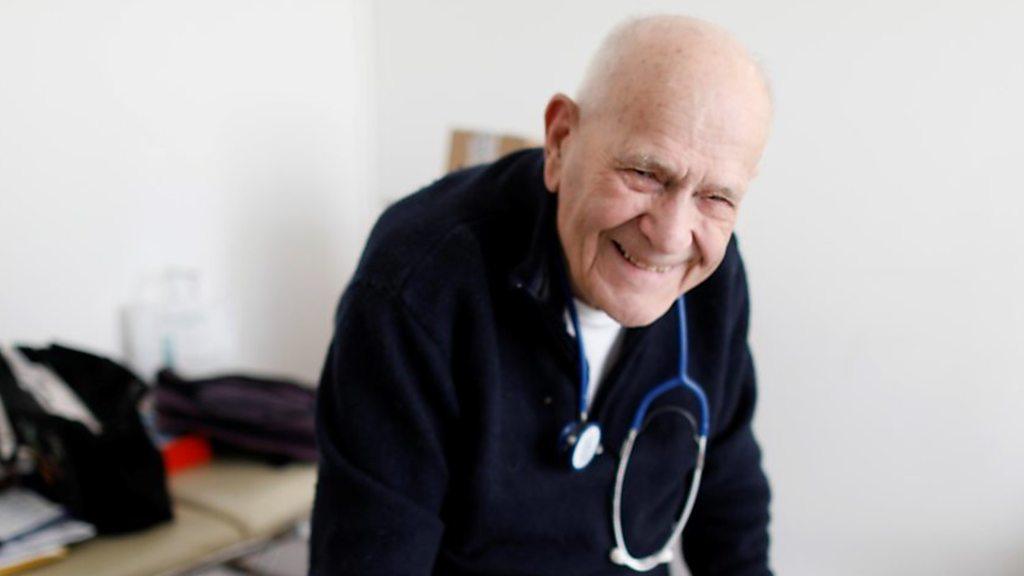Coronavirus: Masks mandatory in France amid fresh outbreaks
- Published
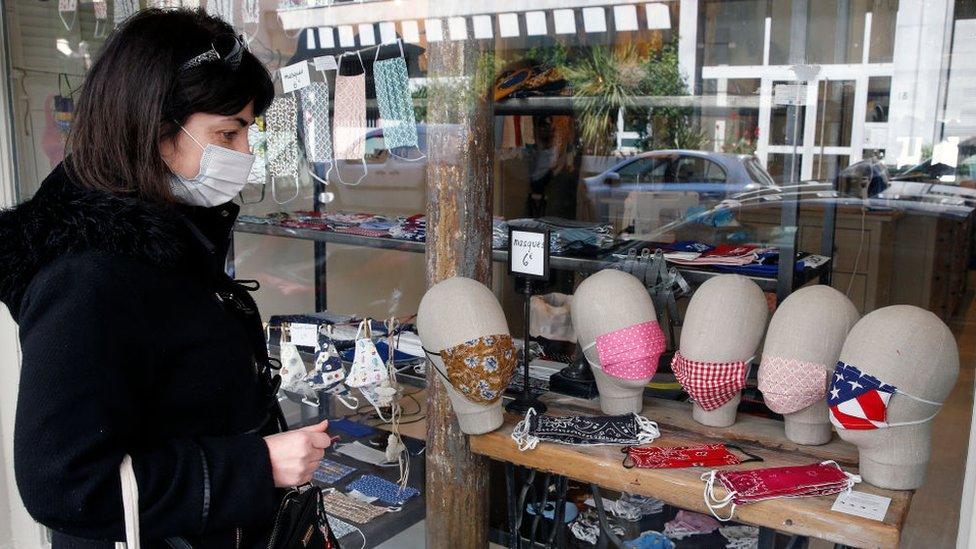
Face masks are now mandatory in all enclosed public spaces, including shops
France has made face masks compulsory in all enclosed public spaces amid a fresh bout of Covid-19 outbreaks.
Masks were already mandatory on public transport, but from Monday they must also be worn in places like shops.
Health Minister Oliver Véran warned that France had between "400 and 500 active clusters" of the virus.
President Emmanuel Macron declared a "first victory" over the virus in June and has ended the national state of emergency, but local outbreaks remain.
There are a rising number of cases in the north-west and in eastern regions, in particular in the north-western department of Mayenne.
France, one of Europe's hardest-hit countries, has recorded more than 200,000 infections and over 30,000 deaths since the start of the pandemic.
What's happening in France?
Face masks are now compulsory in all enclosed public spaces, including shops where previously owners were able to decide themselves whether customers should wear coverings or not. Anyone caught without a mask faces a fine of €135 (£123; $154).
Authorities in Mayenne began calling for mandatory mask restrictions last week as cases soared in the department.
Public health agency Santé Publique France issued a warning for Mayenne after it passed the alert threshold of 50 new cases per 100,000 inhabitants in a week. Across France as a whole, that figure is about 10 per 100,000 inhabitants.
Other regions are also worrying authorities. Brittany in the north-west of France has a reproduction number of 2.6 - meaning each infected person is passing on the virus to nearly three more. The eastern department of Vosges is also seeing rising cases, while the R number in Marseille and Nice is reportedly at 1.55.
What is the R number and what does it mean?
Mr Véran plans to travel to Mayenne later on Monday. While the country is "very far" from a second wave, he told broadcaster France Info that there were "worrying signs of epidemic resumption".
"We must remain vigilant," he said, noting that people had become weary of the restrictions and wanted to return to normal life. "All options are on the table" if local outbreaks worsen, he added, including regional lockdowns or even the return of national restrictions.
Overall the outbreak is broadly under control across France. But a number of public health officials have warned of a potential second wave, and the government has begun stockpiling hundreds of millions of masks.
How about elsewhere in Europe?
Though countries had relaxed restrictions brought in to contain the spread of the virus, many across the continent have been forced to impose local lockdowns or even bring back national measures as infections have risen again.
Spain's north-eastern region of Catalonia has asked millions of its citizens to stay at home, with new cases threatening to overwhelm local health systems.
French Prime Minister Jean Castex said the country could close its border with Spain due to the rising number of local outbreaks.
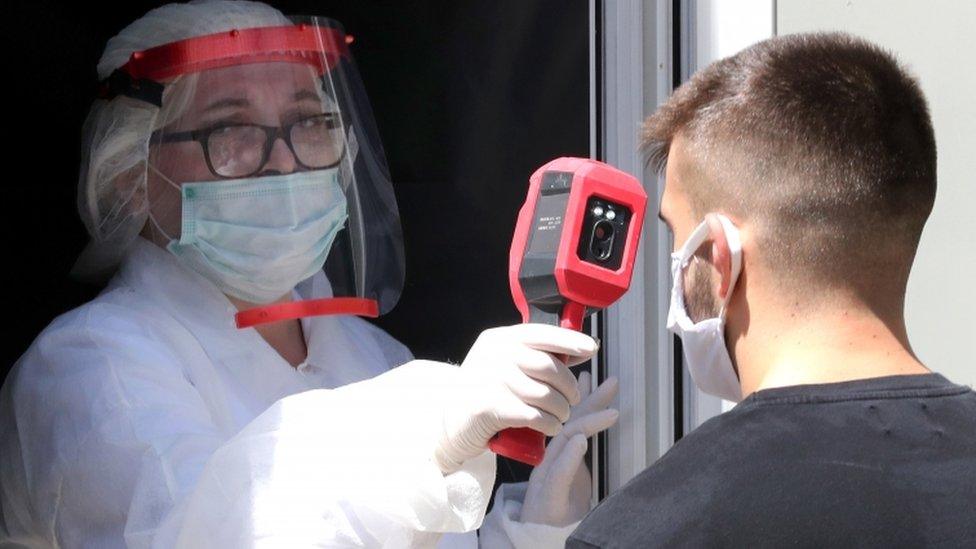
Cases are soaring in the Balkans
Infections are also soaring throughout the Balkans. Bosnia-Herzegovina reported almost 300 new cases on Sunday, and a number of politicians have fallen ill with the virus - including former President Dragan Covic and the prime ministers of its two entities, the Federation and the Republika Srpska.
Serbia, Albania and Montenegro are also reporting large rises in confirmed cases. Montenegro currently has about 195 cases per 100,000 residents - the highest number in the region.
- Published13 July 2020
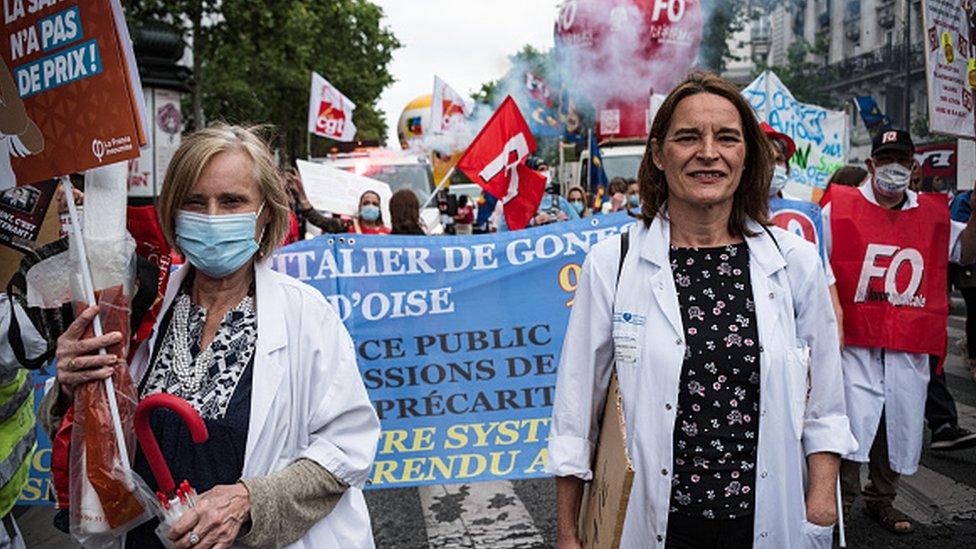
- Published15 June 2020
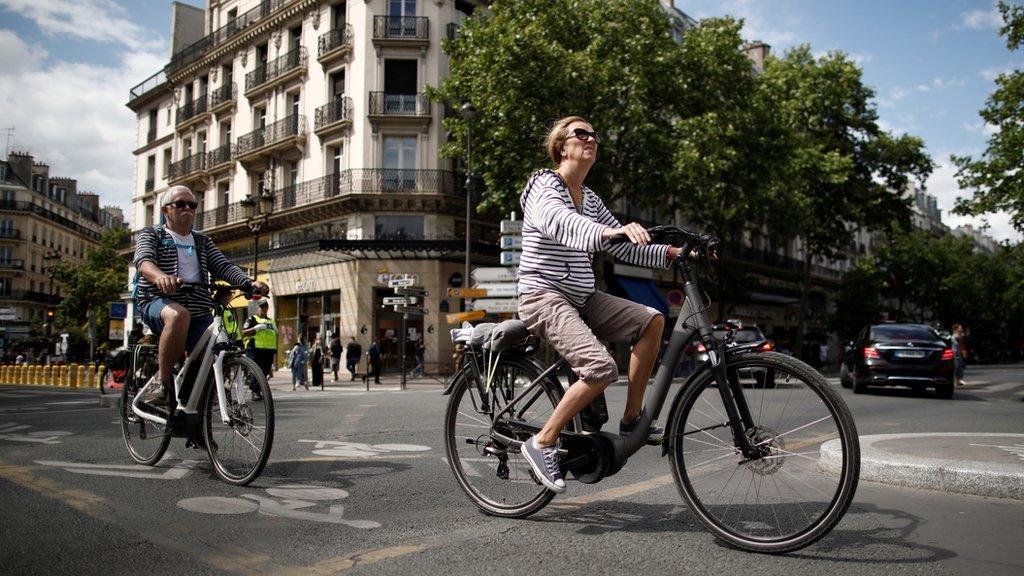
- Published29 April 2020
